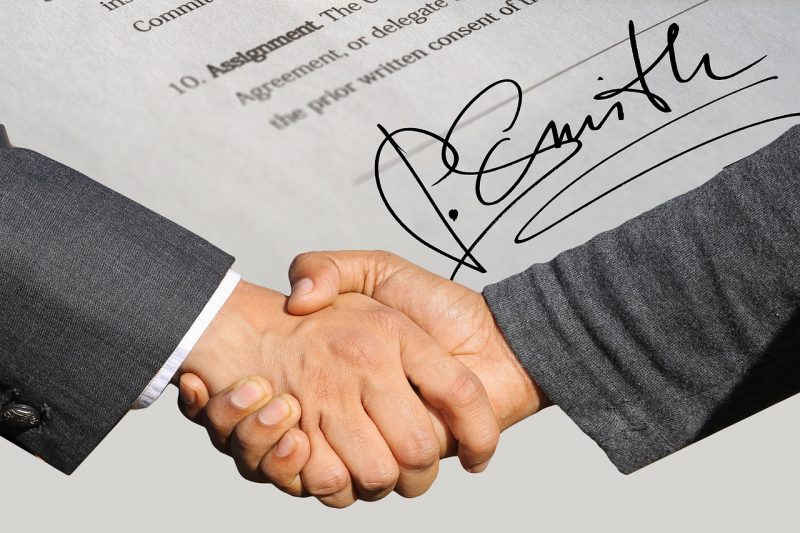
21 Jul Do Depositions Lead to Settlement? Here’s What You Should Know
Can a Deposition Lead to a Settlement?
Unless you are used to legal proceedings, the looming threat of a deposition is intimidating to say the least. To prepare yourself mentally and emotionally for a deposition, you probably have a lot of questions.
So, can your deposition lead to an out of court settlement for the case? Yes, it can. Most depositions won’t be used for more than leverage to reach a settlement before a case goes to trial. A deposition can be used as evidence in court, but a settlement is usually the goal. This can be good or bad news depending on which side of a lawsuit you’re on and how negotiations go.
Whether you are the defendant or the plaintiff, the question you really want to know the answer to is what is the point of a deposition? What is the outcome? What happens afterward? These questions and more will be answered below.

What Are the Possible Outcomes After a Deposition?
First of all, to reduce the fear of the unknown, what is a deposition? A deposition is typically requested after a lawsuit has been filed, but before it goes to court. It is nothing
more than an out-of-court meeting typically held during the discovery stage of pre-trial. Kind of like a formal interview, except the interviewee is under oath for perjury.
At the deposition, lawyers will ask the potential witness to answer questions related to a lawsuit. It is the chance for the deponent (potential witness) to record their version of events.
This is useful because lawsuits sometimes take years to conclude and, as the saying goes, time changes all things. With a deposition recorded and transcribed verbatim, the details won’t be changed because of time or reflection.
Secondly, what is a settlement? You’ve probably heard the term from TV, movies, or even from your lawyer. A settlement is when the two sides in a dispute legally agree on terms to resolve the conflict. Then they sign some forms.
Don’t confuse a settlement with an official ruling or a verdict. A settlement happens before a case goes to court, or during the trial, and is voluntary. A verdict is decided by the judge or jury at the conclusion of a trial.
A settlement is usually an amount of money one party agrees to pay the other as restitution. It could also be splitting or transferring ownership of property or assets. Each case is unique and your lawyer will be able to give you the best-case scenarios for your case.
The statements taken during a deposition will be written down word for word by the court reporter or transcription service. If the deposition was video recorded, the legal videographer will also make a time-stamped copy available after the meeting.
This transcription can be used as evidence in litigation. At this point, there are 3 main outcomes to the deposition:
- The facts are clear and undisputed and both parties will agree to a settlement.
- The facts are clear and undisputed but the parties can not agree on a settlement.
- The facts are questioned and disputed.
For the first outcome, a settlement is reached and both parties drop their cases. However, the last two outcomes can lead to a lengthy negotiation at best and a trial at worst. If the case goes to trial, you might be called upon to testify in court. We have a great article about what happens after a deposition over here.
How Does a Deposition Lead to a Settlement?
After the deposition, the lawyers will gather and review the transcription(s), documentation, and other evidence from the discovery period. Then, they will try to build a case based on what was revealed. At this point, it may become clear that a trial will only harm their client and they’ll push for a settlement.
This could be because there isn’t really a case to file after everything is discovered. Maybe incriminating facts have been revealed under oath. Or, maybe the evidence for the opposition is stronger and they decide they would lose if they go to court. These are all good reasons for a lawyer to opt for a settlement.

What Happens When a Lawyer Decides to Move for a Settlement?
After reviewing the evidence, the lawyers will get in touch with each other and decide to attempt a settlement out of court. They will then review the facts with their client and advise what the possible outcome of a trial would be. Then, one lawyer will make an offer to the other lawyer or claims adjuster and begin negotiations.
During the consultation, you and your lawyer will discuss expectations for the case: What must you have, what is nice to have, and what things do you not care about one way or the other? What you want to get out of a settlement will be taken into account by the lawyer when they negotiate.
Provided everything is uncontested, negotiations can be quick. You should expect at least six weeks for a simple case. However, if anything is contested, it could take longer to reach a settlement if one is reached at all. Negotiations are arguably the most variable stage in a lawsuit, so they often take a long time.
How Long Does It Take to Get a Settlement After a Deposition
The amount of time that it takes to conclude negotiations and get your settlement varies. Sometimes it is agreed upon quickly and is just a matter of signing papers. Sometimes negotiations break down because there is no middle ground to settle on. Sometimes they are put on hold for medical examinations or treatments to finish.
Unfortunately, there are too many factors that can affect a settlement to get an exact timeframe. Your state’s laws on civil procedure may give a time limit for filing a lawsuit, However, there is no mandated time frame for review or negotiation. Best case scenario, you could reach a settlement and have your money in four months after the discovery phase finishes.
Litigation is not a thing to rush into. It can take a long time to conclude, even with a clear cut case. The best thing you can do is be patient, keep calm, and communicate with your lawyer.

What Happens to My Settlement Money After Negotiations?
After negotiations have been reached, there is a lot of paperwork. You’ll need to sign a carefully worded release form saying you won’t pursue another lawsuit for this specific issue. After the release form and other legal documents are filed, the defendant will start the internal process of getting your payment ready. The time limit on this varies from state to state and there may be unforeseen delays in payment.
The money is usually, but not always, sent to the law firm. It is held in escrow while fees and debts, or liens, are paid off. These include legal fees, medical debt, child support, etc. Basically, anything that got put off while your case was being fought. After everything is paid off, you will receive your portion of the settlement. If your settlement payment is taking more than six weeks, talk to your lawyer.
Occasionally, especially in personal injury cases, an insurance claim will be paid as a structured settlement. This means that the insurance company will spread out the settlement payment over a period of time, sometimes years! This usually happens when the claimant is a minor or there is a catastrophic injury that requires ongoing medical treatment. This could be risky if the contract only lasts until death, then your loved ones are left with the bills. Talk to your lawyer about the risks and rewards of a structured settlement.
What kind of questions get asked in a deposition? Your personal details and details about the case, as well as questions about your past deposition experience. Deposition Academy has an in-depth article about common deposition questions you should check out for more information.
What should I wear to a deposition? Since it is a legal proceeding, you should appear clean-cut and professional. You can find some great tips for attire to wear to a deposition over here.
How should I act? Be honest, be calm, and make sure you prepare before you arrive. We have more tips in this article.
What if I have some dark secrets that will destroy my case? Talk to your lawyer about the best way to answer questions related to that secret. Lying or hiding details will not help your case either, and might even lead to costly and prolonged litigation.






